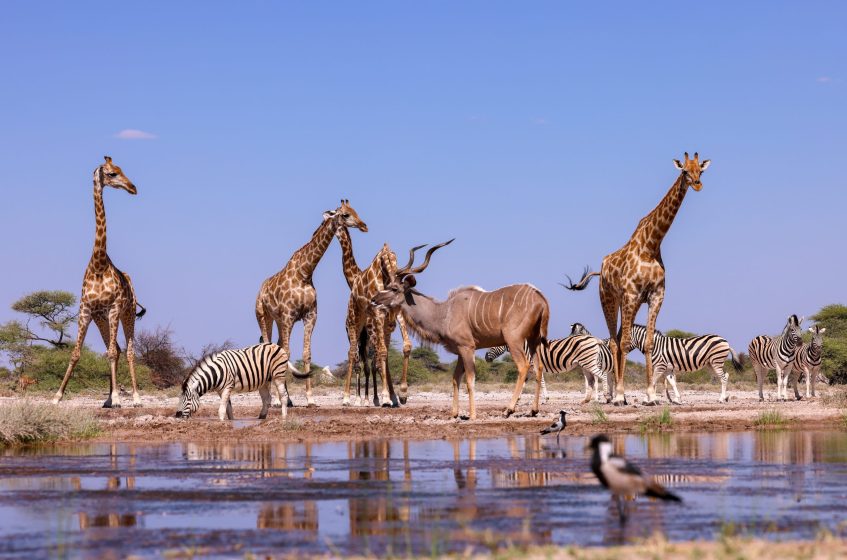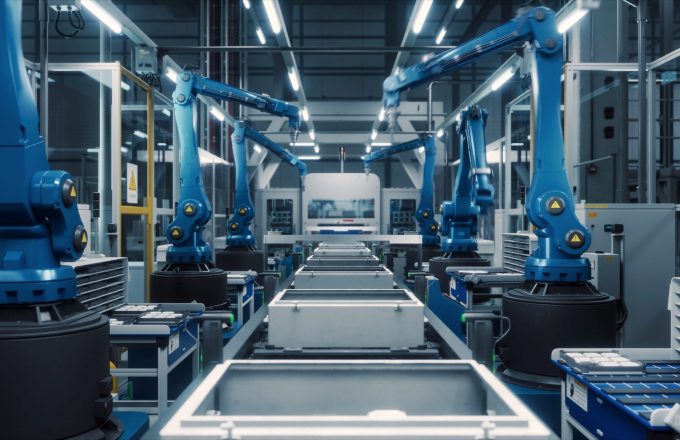
The Story of Vultures, Wolves, and Humans: Assessing the Economic Value of Biodiversity
To demonstrate the importance of protecting biodiversity, the author explored the extraordinary environmental, social and economic benefits that restoring ecosystems can bring to different parts of the world, drawing on insights from various studies.
The Earth is in the midst of a sixth mass extinction event. Scientists estimate that since the Industrial Revolution, the rate of species extinction has surpassed that of natural extinction by hundreds, if not thousands of times (Note 1). According to the International Union for Conservation of Nature (IUCN), roughly 800-plus known species have become extinct since the 16th Century (Note 2). With more and more species edging closer to extinction, global biodiversity is under severe threat.
It is difficult to estimate the cost of biodiversity loss. On the one hand, the extinction of specific species impacts human society in ways that are indirect, long-term, and manifest across many dimensions. This makes these effects challenging to quantify. On the other hand, interactions between different components of an ecosystem are complex and not fully understood by scientists. This makes it difficult for researchers to establish cause and effect.
To decision-makers, they can only formulate effective protection policies if they know the cost/benefit of protecting biodiversity. Quantifying the economic value of biodiversity is not only an important job for economists, but it is also a common demand from regulators and the public. Hence, here are a few original studies. They will provide a better understanding of how valuable biodiversity is to human society.
Vultures feed on dead and decaying animals, helps dispose of animal bodies that contain high levels of bacteria. This also indirectly controls the number of scavengers such as wild dogs and rats, providing great benefits to public health. However, from the 1990s, Indian farmers began using diclofenac on animals to treat inflammation and pain. While diclofenac causes no harm to livestock, the drug is fatal to vultures. After consuming animal bodies that contain diclofenac, the number of vultures in India dropped from 50 million to just a few thousand over a decade (Note 3). A study recently published in American Economic Review quantified the impact of functional extinction of vultures on human mortality rate (Note 4). The research found that once vultures disappeared, the ecological quality of their natural habitat deteriorated rapidly and more surface water became contaminated by pathogenic bacteria. There was also a jump in the number of wild dogs and rats. In the end, the mortality rate in these areas went up by an average of 4.7%. Researchers estimate that the functional extinction of vultures causes an additional 100,000 deaths in India each year, with an annual economic loss of close to US$70 billion.
The decline of wolf populations has led to a huge increase in deer herds around the world. An overpopulation of deer has become a disaster in itself, causing tremendous social costs in the form of increased deer-to-vehicle collisions. In the United States, there are roughly 2 million such collisions every year, resulting in some 59,000 people injured, 440 deaths, and economic losses of more than US$10 billion (Note 5).
In 2021, the Proceedings of the National Academy of Sciences (PNAS) published a study showing that the reintroduction of wolves could drastically cut the number of deer-vehicle collisions (Note 6). Through comparing areas with and without wolf activity in the state of Wisconsin, researchers discovered that deer-vehicle collisions dropped by 24%, once wolves were reintroduced. The economic benefits of reduced deer-vehicle collisions are 63 times greater than the costs associated with wolf predation on livestock.
More importantly, the reduction in collisions is mainly attributed to a change in deer behaviour given the “landscape of fear” from wolf presence. This means deer avoid falling prey to wolves by avoiding pipelines or roads that help wolves’ travel-efficiency and kill rate. Another reason there is a decrease in collisions is the drop in deer population due to wolf predation. The presence of wolves allows deer to perceive predation risks and adjust their behaviour, thereby reducing their presence on roads and highways. The presence of wolves can effectively control economic losses from an overabundance of deer in ways that human deer hunters cannot.
Over the past decades, many countries have devoted themselves to restoring their ecosystem to realise a sustainable future. In China, the government has implemented some of the world’s largest ecosystem restoration projects (e.g. the “Shelterbelt” project, the “Returning Farmland to Forest” programme, and natural forest protection efforts). However, there has been limited research on the ecological and economic benefits of these projects.
I teamed up with other researchers and we studied the 10 largest ecological restoration projects in China over the past 20 years. We found these projects have created a positive impact on alleviating localised extreme heat, while notably improving local air and water quality downstream (Note 7).
Moreover, by analysing bird observation data, we discovered China’s ecosystem restoration efforts increased bird numbers, contributing to biodiversity protection. Our cost/benefit analysis also demonstrated that the environmental health benefits from such restoration projects exceed the financial investments by more than ten times.
Through the above case studies, it is evident that biodiversity impacts human society in unexpected ways. Losing some key species could cause enormous damage to mankind, yet effective protection measures and ecosystem restoration projects can significantly improve the environmental quality and create huge economic and social benefits. The destinies of human beings and other creatures are intertwined. Biodiversity protection is not a responsibility limited to scientists, but one that we all share.
I will conclude by raising awareness on the importance of biodiversity with a quote from British animal behaviourist and conservationist Dr. Jane Goodall: “Only if we understand, will we care. Only if we care, will we help. Only if we help shall all be saved.”
Note 1:Pimm, S. L., Russell, G. J., Gittleman, J. L., & Brooks, T. M. (1995). The future of biodiversity. Science, 269(5222), 347-350. https://www.science.org/doi/10.1126/science.269.5222.347
Note 2:Fernández-Palacios, J. M., Kreft, H., Irl, S. D., Norder, S., Ah-Peng, C., Borges, P. A., … & Drake, D. R. (2021). Scientists’ warning–The outstanding biodiversity of islands is in peril. Global Ecology and Conservation, 31, e01847. https://www.sciencedirect.com/science/article/pii/S2351989421003978
Note 3:La, V., (2024) ‘Loss of India’s vultures may have led to deaths of half a million people’, Science, 15 July.
Note 4:Frank, E., & Sudarshan, A. (2024). The social costs of keystone species collapse: Evidence from the decline of vultures in India. American Economic Review, 114(10), 3007-3040. https://pubs.aeaweb.org/doi/pdfplus/10.1257/aer.20230016
Note 5:Cunningham, C. X., Nuñez, T. A., Hentati, Y., Sullender, B., Breen, C., Ganz, T. R., … & Prugh, L. R. (2022). Permanent daylight saving time would reduce deer-vehicle collisions. Current Biology, 32(22), 4982-4988. https://www.sciencedirect.com/science/article/pii/S0960982222016153
Note 6:Raynor, J. L., Grainger, C. A., & Parker, D. P. (2021). Wolves make roadways safer, generating large economic returns to predator conservation. Proceedings of the National Academy of Sciences, 118(22), e2023251118. https://www.pnas.org/doi/epub/10.1073/pnas.2023251118
Note 7:He, G., Liang, Y., Pan, Y., Xing, J., Xu, J., Zhong, Z., Zou, E. (2024). China’s Ecological Restoration: Evidence from the Last 20 Years. Working Paper.
Guojun HE
Professor in Economics, Management and Strategy
Director, HKU Jockey Club Enterprise Sustainability Global Research Institute
This article was also published on January 17, 2025 on the Financial Times’ Chinese website







